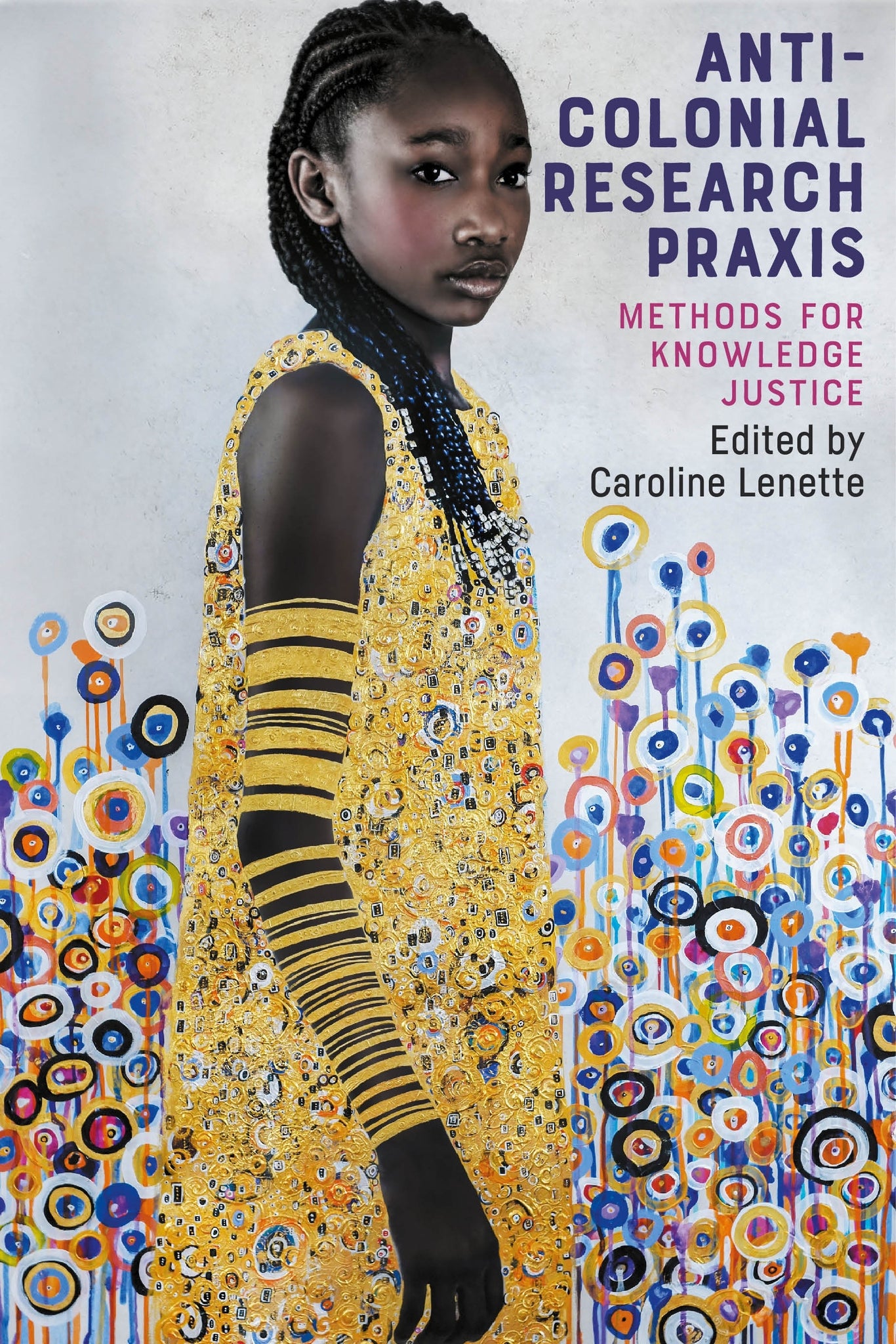We're sorry. An error has occurred
Please cancel or retry.
Anti-colonial research praxis

Some error occured while loading the Quick View. Please close the Quick View and try reloading the page.
Couldn't load pickup availability
- Format:
-
22 April 2025

How can anti-colonial research methodologies be transformative and achieve knowledge justice? This book brings together leading scholars from around the world to share methodological knowledge grounded in First Nations and majority-world expertise and wisdom. The authors challenge western-centric and colonial approaches to knowledge production, redefining the possibilities of what we can achieve through social research.
The First Nations and majority-world perspectives highlighted here share a common aim of disrupting established beliefs about research methodologies and unquestioned norms in the academy. Authors in this edited collection describe how they draw on Indigenous knowledge systems, feminist frameworks and creative methodologies as forms of anti-colonial research praxis. Spanning development studies, geography, education, sexual and reproductive health, humanitarian studies and social work, the authors reflexively discuss the specific factors shaping how they engage in research ethically. The book reimagines social research through an anti-colonial lens, concluding with a set of provocations for anti-colonial research praxis that situate this important work in the context of ongoing colonial violence and institutional constraints.
This book is an essential guide for researchers and scholars within and beyond the academy on how anti-colonial research praxis can produce meaningful outcomes, especially in violent and troubled times.
Cover art courtesy of Tawny Chatmon

SOCIAL SCIENCE / Sociology / General, Decolonisation of knowledge / Decoloniality, SOCIAL SCIENCE / Research, SOCIAL SCIENCE / Methodology, Research methods: general, Sociology

'This book is the perfect accompaniment to Professor Linda Tuhiwai Smith’s 1999 challenge to the social sciences to ‘decolonise’ its knowledge production activities. By combining works that centre Indigenous, feminist praxis, and creative approaches to the research paradigm, the book offers established, post-graduate and undergraduate scholars a framework for carrying out anti/decolonised and empowering research praxis.'
Professor Juan Tauri, University of Melbourne
'This book is a profound and generous offering to the fields of research and knowledge justice. With remarkable patience and clarity, the authors reveal how colonial frameworks have long shaped knowledge production while charting pathways for meaningful transformation. Grounded in First Nations and majority world perspectives, it boldly resists Eurocentric validation, centring methodologies that embody nuance, care, and the principles of anti-colonial praxis. The authors confront the co-optation of decolonial language and practices, emphasizing the urgency for integrity and agility in both research and action. By transforming traditional methods—such as interviews and participatory research—through anti-colonial and feminist lenses, they provide a powerful toolkit for dismantling colonial legacies. The conclusion’s nine provocations for praxis offer an inspiring and actionable framework for change, calling us to move beyond symbolic gestures toward systemic transformation. This book is an essential guide for reimagining research as a site of justice, accountability, and solidarity.'
Professor Mónica G Moreno Figueroa, University of Cambridge
'Anti-Colonial Research Praxis: Methods for Knowledge Justice is transformational. It not only disrupts colonial hierarchies, but also embodies and enacts different ways of knowing and doing. The book invites readers to act in solidarity by resisting epistemic injustice and reframing research in generative and creative ways. Anti-Colonial Research Praxis is an essential resource for students, instructors and researchers both in and beyond academia.'
Professor Christina Clark-Kazak, University of Ottawa
Introduction: Anti-colonial research praxis and knowledge justice in the academy - Caroline Lenette
Part I: Indigenous knowledge systems
1 Reflecting on the use of Chilisa’s Indigenous knowledge postcolonial paradigm as a decolonial praxis - Lieketseng Ned, Elelwani Ramugondo and Gubela Mji
2 Respecting Country as a living Methodology: The Kookaburra Song - Crystal Arnold
3 Decolonising social work research: Subverting the white, western paradigm through praxis - Autumn Asher BlackDeer
4 Kaupapa Maori: Asserting Maori humanity within a university - Adreanne Ormond
Part II: Feminist frameworks
5 Rethinking the (im)possibility of participation in humanitarian research: Co-constructing knowledge through feminist methodologies - Kaira Zoe Alburo-Cañete and Gabriela Villacis Izquierdo
6 The excess of qualitative interviews, and the feminist, anti-colonial reimaginings of research methods - Charisma Ratnam, Paula Satizábal and Maria de Lourdes Melo Zurita
7 Exploring decolonial feminist approaches through arts-based research on sexual and reproductive health and rights in the Philippines - Marie Aubrey Villaceran
Part III: Creative methodologies
8 Theatre of the Privileged as a tool for anti-racist education and research - Laila Kadiwal and Mai Abu Moghli
9 The story circle interview method: The power of story as data - Judy Pryor-Ramirez
10 Reflecting on a Teen Advisory Group in participatory research in South Africa - Aviwe Baartman, Sesona Baskiti, Chelsea Coakley, Sibulele Dyobiso, Yamkela Hlekani, Chumisa Jack, Luyolo Jack, Sinesipho Kwetha, Sandisiwe Mafuya, Tebogo Malahlela, Hlokoma Mangqalaza, Yolanda Mapukane, Mpho Mendu, Siphokuhle Ponoyi, Yusra Price, Mildred Thabeng and Lisanda Zanempi.
Conclusion: Nine provocations for anti-colonial research praxis - Caroline Lenette, Kaira Alburo-Cañete, Crystal Arnold, Lieketseng Ned, Adreanne Ormond, Yusra Price, Judy Pryor-Ramirez, Elelwani Ramugondo, Charishma Ratnam, Mildred Thabeng and Gabriela Villacis Izquierdo
Index



